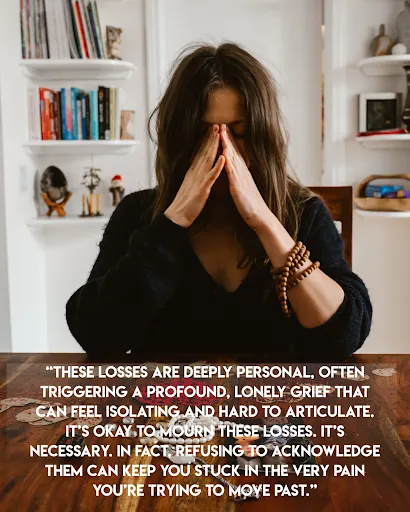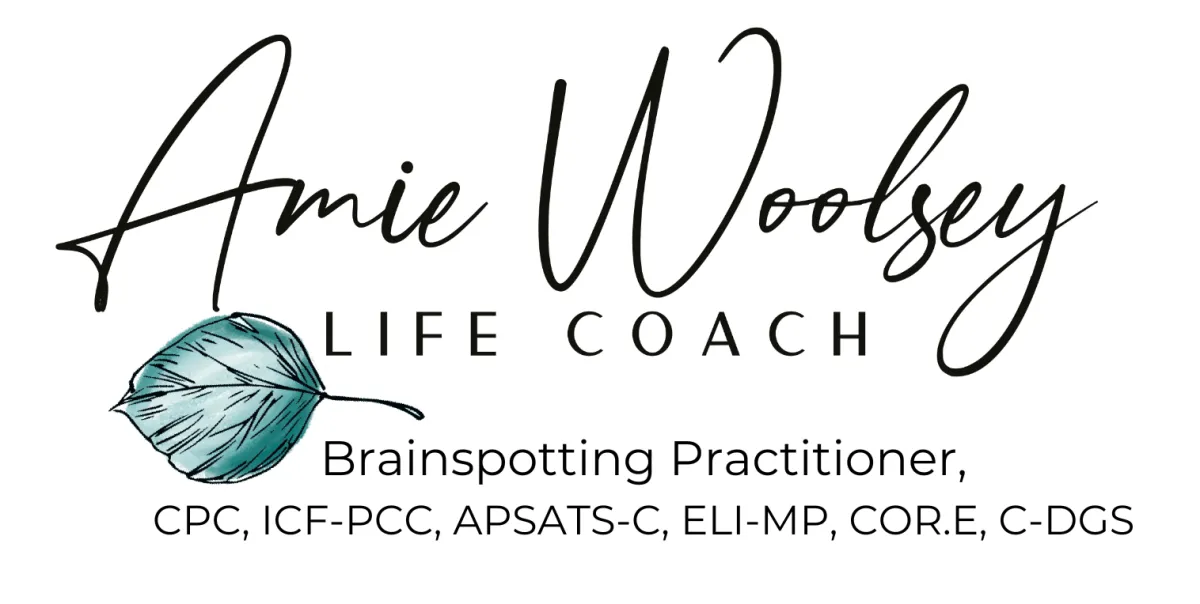
Navigating Loss After Betrayal and Divorce
Divorce after betrayal and abuse is a unique form of loss, often layered with complex grief that goes beyond the end of a marriage. If you’ve walked this path, you know that the losses are not just about the relationship but reach deep into your identity, faith, future dreams, and even your sense of self-worth. Understanding these losses is an essential part of the healing process and can be a powerful step toward reclaiming your life and agency.
Recognizing the Many Forms of Loss After Divorce from Betrayal
When betrayal shatters a marriage, the loss can feel overwhelming. It’s not just the person you’re losing, but the life you once believed you had. As I reflected on my own journey, I made a list of all the losses I felt. It’s a long one, and it might resonate with you:
Loss of future expectations
Loss of trust with others, self, and God
Loss of worth and value
Loss of a life partner
Loss of love and companionship
Loss of children (through physical separation or emotional disconnection)
Loss of control
Loss of the dream of being a stay-at-home mom
Loss of financial security
Loss of time and missed opportunities
Loss of shared memories and the life you thought you were building
Loss of faith and hope
Loss of standing in your community or faith tradition
Loss of your place in the family you envisioned
Loss of feeling safe in relationships
Loss of health and vitality (even hair loss from stress!)
It’s important to recognize that this kind of loss is not just about the end of a relationship. It’s about the collapse of an entire life structure you once relied on. These losses are deeply personal, often triggering a profound, lonely grief that can feel isolating and hard to articulate. It’s okay to mourn these losses. It’s necessary. In fact, refusing to acknowledge them can keep you stuck in the very pain you’re trying to move past.
The Personal Nature of Grief After Divorce
Grief is a profoundly personal experience. No two journeys are alike, and it’s not just about the person you lost. It’s about the dreams, the plans, and the identity you once clung to. This grief is layered, often complicated by trauma, betrayal, and the shattering of trust. It’s a form of ambiguous loss, where what you thought you had is gone, but you’re left questioning what was ever real.
Looking at old photographs, videos, and memories can be one of the hardest parts. I remember feeling a deep sense of betrayal as I flipped through pictures, moments I thought were real, only to realize they were wrapped in lies. I felt stupid and naive, wondering how I missed the signs, questioning my judgment, and mourning the years I thought were filled with genuine connection. If this is where you find yourself, know that it’s okay to feel this. It’s okay to mourn not just the loss of the relationship, but the loss of the reality you believed in. You’re not alone in that confusion.
Losing Trust in God and Spiritual Foundations
For many, betrayal can shake the foundation of their spiritual beliefs. I know this firsthand. I felt I had lost not just my marriage but my relationship with God. I wondered if He had abandoned me, if my worth in His eyes had somehow diminished. I was angry and even blamed Him for not warning me.
Rebuilding this trust was a gradual, sometimes painful process. I had to learn to see His hand in my life again, to look for small signs of His presence, and to trust that my worth in His eyes had never changed. If you are in this place, know that it’s okay to feel anger, confusion, and doubt. God’s love is constant, even when we feel lost.
The Complex Grief of Losing a Marriage
Divorce after betrayal is not just about losing a partner. It’s about losing a shared identity and a future you once believed in. It’s the end of countless small dreams and the loss of a role you may have poured your entire heart into. For some, this grief is compounded when an ex moves on quickly, introducing a new partner into your children’s lives, which can feel like a fresh wound.
The Fear of Losing Your Children
One of the deepest fears for many women in divorce is the fear of losing their children. It’s a visceral, gut-wrenching fear that can make you question everything. The worry that your children might become distant, blame you, or feel lost themselves can keep you up at night. Fearing that if your ex moves on the children will love her more than you. The fear of this kind of loss can be paralyzing. I faced this fear and learned that my role as a mother could never truly be taken from me. My bond with my children remains unbreakable, even when circumstances shift.
Reclaiming Your Memories and Your Worth
It can be painful to look back on old memories and wonder if any of it was real. Betrayal can cast a long shadow, making you question your entire past. But here’s the truth: those moments were yours. Your joy, your love, your experiences were real because they came from you. You do not lose your past just because someone else failed to honor it.
Likewise, your worth is not tied to another person’s actions. You are inherently valuable and deserving of love and respect. Nothing changes that, even when you’re faced with profound loss and heartache.
Moving Through Loss with Power
Grief, if not fully processed, can become a prison. But it can also be a doorway. Psychologist Martin Seligman talks about the 3 P’s that shape how we process loss and trauma:
Personalization – Believing the betrayal happened because of something inherently wrong with you.
Pervasiveness – Believing that the betrayal or divorce defines every part of your life.
Permanence – Believing that the pain of this betrayal will never end.
Recognizing these patterns and actively choosing to rewrite your story can be a powerful way to reclaim your sense of self and agency. It’s a way to move from merely surviving to truly thriving.
You Are Not Alone, Yet This Grief Is Lonely
Divorce after betrayal is a uniquely isolating experience. It’s a grief that others often struggle to understand because it’s not just about the loss of a spouse, but the loss of trust, identity, and the very fabric of what you believed your life would be. It’s a lonely grief, even when surrounded by supportive friends and family, because the pain is deeply personal. It’s the grief of losing the person you thought you were, the life you thought you had, and the future you thought you were building.
This kind of grief can feel endless, echoing in the quiet moments, surfacing in unexpected ways. It’s the silent tears in the grocery store, the pang of watching your children adjust to a reality you never imagined for them, the sharp ache of seeing couples who still have what you’ve lost.
But know this – your grief is real, and it’s valid. It’s a testament to the love, trust, and dreams you once held. And as lonely as this path may feel, you are not truly alone. There are others who understand, who have walked this path, and who can walk beside you as you reclaim your life.
_________________________________________________________________________
Remember: You are not broken, and healing is possible. Let’s start this journey together, regain your trust in yourself, and move toward the peace you deserve.
XO,
Amie Woolsey
Certified Brainspotting Practitioner, CPC, PCC, APSATS-CPC
DBR Alexander Technique Informed
MORE SUPPORT:
Believing In You Coaching Membership
Should I Stay Or GO; Self Paced Course
Intimacy WIthin; Self Paced Course

